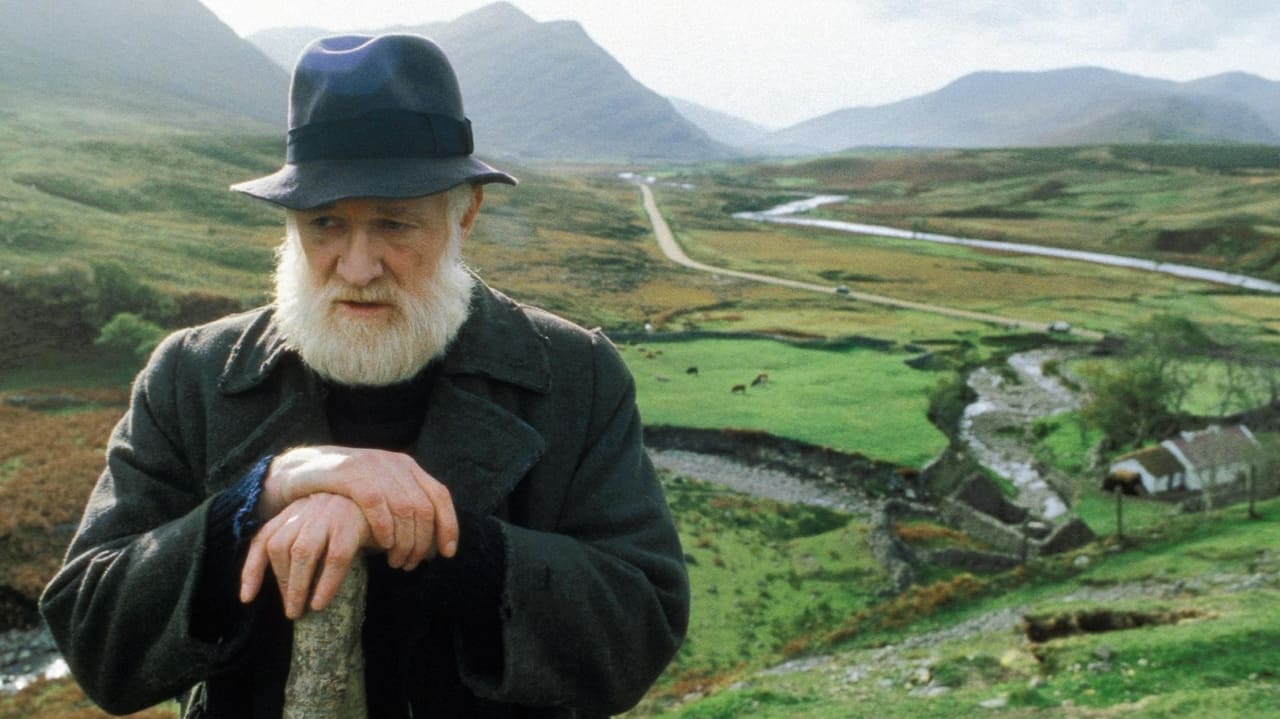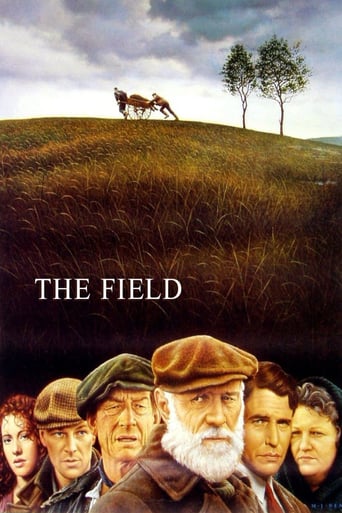Senteur
As somebody who had not heard any of this before, it became a curious phenomenon to sit and watch a film and slowly have the realities begin to click into place.
Quiet Muffin
This movie tries so hard to be funny, yet it falls flat every time. Just another example of recycled ideas repackaged with women in an attempt to appeal to a certain audience.
Jakoba
True to its essence, the characters remain on the same line and manage to entertain the viewer, each highlighting their own distinctive qualities or touches.
Scarlet
The film never slows down or bores, plunging from one harrowing sequence to the next.
kennellygerard
There are irish films that deserve to be watched and there are irish films you should avoid like the plague. The Field is the latter.Richard Harris plays a man who intimidates everyone he meets, he has two sons.. he bullied one until he committed suicide, he is trying to bully the other one into marrying a lady he doesn't even know because she is wealthy, he bullies his wife when she eats dinner. Bull is an odious excuse for a human being.Bull's son spends his nights bullying a defenseless woman. When Bull finds out the lady has been intimidated he acts high and mighty, he condemns what the son did. To hear this coming from a man who bullies people 7 days a week is sickening.When a local piece of land is up for sale he tries to take over the auction in the (false) assumption that everybody else is afraid of him. The local bar owner despises Bull and even tries to get a rise out of him by suggesting an outsider will bid against him.An American starts to bid against Bull, a young man with no shortage of money. This puts Bull over the edge so he begins a campaign of intimidation that will ultimately ends in murder.The local priest wants the community to have a fair auction where anyone can bid without fear. When the priest confronts him Bull tries to deflect his vile behavior by mentioning how corrupt the church was during the famine.It's no secret that director Jim Sheridan and John B Keane had a falling out. John B didn't like how different the film is compared to the play. In Sheridan's defense the play is even worse, in the play Bull McCabe boasts that he beat a donkey to death with his bare fists. Ironically John B Keane's son Billy was on an irish talk show and he said the only part of the the film he didn't like was the animals going off the cliff.
rehsur
Does the work of our hands give us any right? A piece of paper says it doesn't. Generations of sacrifice says it does. A whole life dedicated to the patient creation of -in words of the peasant- "a living thing", the field, bonds the man with the land. This question is the core of this excellent movie, located in a small Irish town, with the opposing characters of the catholic priest, the policeman, the proprietor and the wealthy man on one side, and the common people on the other. Richard Harris is enormous as the main character, and the cast is excellent. The only flaw of the movie is the ending, which is simply ridiculous, since it's capricious and it actually looks as if the priest of the story had written it, as a moralistic message, a cosmic punishment. Too bad, but you can skip the last minute.
Michael Neumann
Richard Harris plays a crusty old Irish farmer, who after a lifetime spent tending a small plot of land for an English widow defies anyone to challenge his right to ownership when the property is offered for sale by public auction, but meets unexpected competition from a greedy American developer intent on paving it. How the Irishman finally acquires his precious field, and at what cost, makes for an often powerful drama, but everything after the auction itself is absurd anti-climax, piling tragedy upon tragedy for at least a full half hour of surplus screen time. The story is, of course, analogous to the much larger conflict between Ireland and Britain, suggesting that the Irish, with their near-obsessive attachment to the land, can at times be their own worst enemy. Tom Berenger's Ugly American is nothing more than a two-dimensional Yankee stereotype, and Elmer Bernstein's music score is all wrong, but the final, striking image of Harris trying in vain to hold back the tide aptly illustrates the futility of his challenging the inevitable.
bkoganbing
Tenant farmers in Ireland and their problems accounts for some of the great political movements in that country. So it was interesting to learn that in The Field those problems have not gone away even though it's not British who are absentee landlords.Shot mostly in County Galway in Ireland, The Field certainly has the look and feel of The Quiet Man, but it's hardly in the same lighthearted spirit. In fact the priest in this film functions more like Karl Malden's priest of the docks in On The Waterfront.Richard Harris has been a tenant farmer working the land for widow Frances Tomelty for years and has raised his family there. It's pretty much accepted by the villagers that it's Harris's land by right of sweat so when the widow wants to sell no one bids against him except Harris's sidekick John Hurt. But American Tom Berenger doesn't know the rules around there and he does bid.But what Berenger wants to do is develop the place, put some Americanized shopping mall there. Imagine a strip mall on some of that beach-front property that John Ford so lovingly photographed in The Quiet Man and you can understand the feelings there. It all leads to a lot of tragedy.Originally Harris was supposed to play the priest role that Sean McGinley had and who played it well. The lead was to go to Ray McAnally who had done this role on stage. When McAnally died, Harris was moved up to the lead and responded with an Oscar nominated performance for Best Actor. Harris lost that year to Jeremy Irons in Reversal of Fortune.Also look for some nice performances here by Sean Bean as Harris's son and Brenda Fricker as his wife. All part of a very violent household.Religion specifically the Roman Catholic Church takes a beating and The Field does touch on the conservative role of the church in society. It's a generally accepted fact that the Church did its level best to discourage revolutionary activity during the 19th century after the Irish lost their parliament in the Wolfe Tone rebellion. Harris and others in the film comment about how no priests died during the potato famine that they don't know how the tenant farmers live. And Sean McGinley as the village priest is by no means portrayed as a bad man. There's also bad feelings towards Berenger who is seen as the descendant of people who cut and ran during the Irish troubles. Of course if a lot hadn't emigrated to all points of the globe, there would be a lot more trying to share the land that Harris wants to hold on to. The Field is a fine drama about Ireland and the problems there that may not have been totally resolved with independence.

